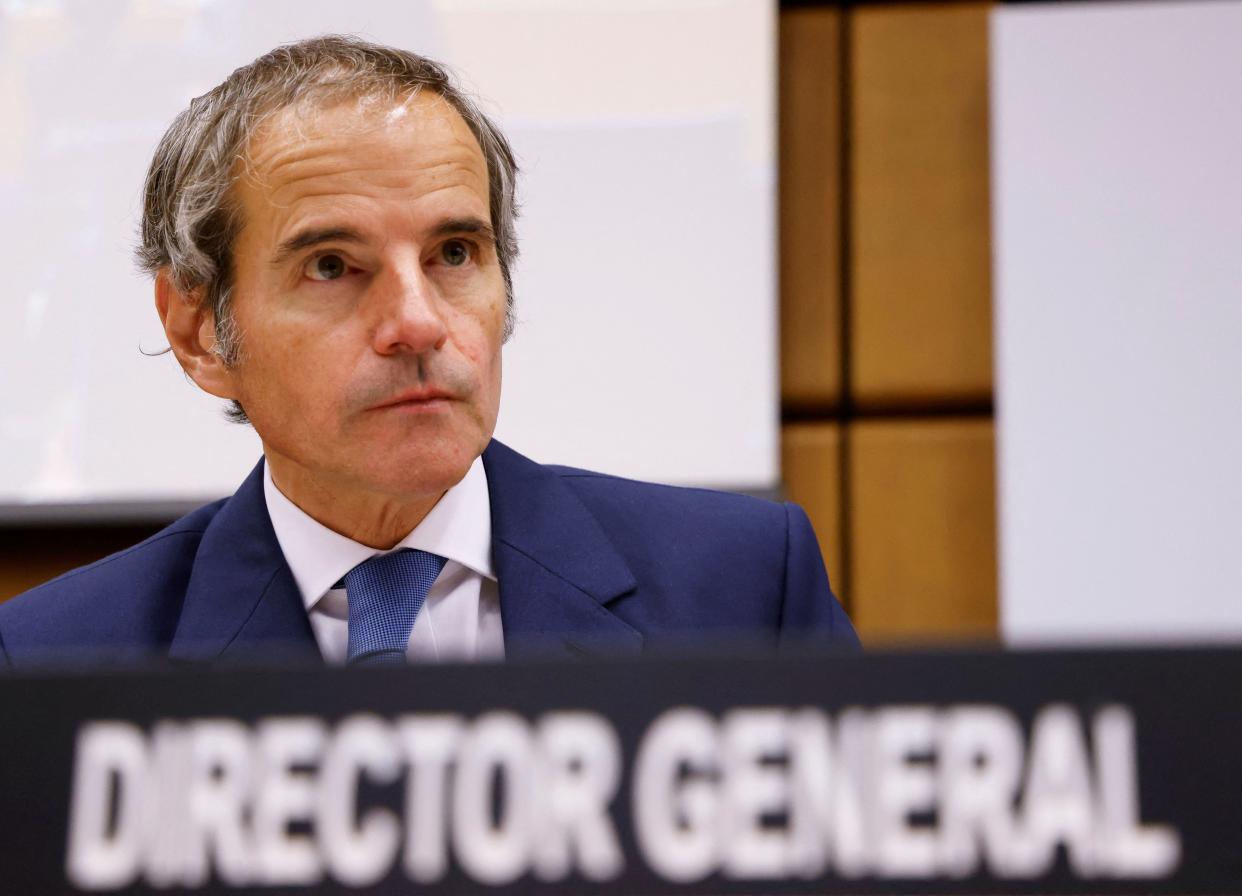UN nuclear watchdog criticizes Iran for lack of transparency

Insights from The Wall Street Journal, Politico, and Deutsche Welle
The News
Tensions between Western nations and Iran grew after the International Atomic Energy Agency passed a resolution criticizing Iran for its lack of transparency about its nuclear program.
A draft version of the censure resolution called on Tehran to explain the discovery of uranium traces at two undeclared locations in Iran, allow IAEA inspectors who have been banned from the country to resume their work, and to reconnect cameras at several nuclear sites, AFP reported. The resolution was passed with a vote of 20-2, with 12 abstentions and one country not voting.
Iran has vowed to respond “accordingly” to the resolution.
SIGNALS
Iran’s nuclear threat is on the rise
Iranian officials have hinted publicly at the possibility of developing nuclear weapons, on top of failing to comply with measures the IAEA says is crucial for verifying that Iran is not covertly pursuing a weapons program. Iranian military officials have said that the country could review its nuclear strategy if threatened by Israel, and public support for nuclear weapons is on the rise. At the same time, Iran has increased its stockpiles of enriched uranium, cutting down the time it would take to build a nuclear bomb. The IAEA head said Iran is “weeks rather than months” away from having enough enriched uranium to build a nuclear bomb, although building a warhead would still take time.
Experts warn the proposal may have little impact
The European countries proposing the motion have warned that failing to take action would weaken Western credibility and the authority of the IAEA. Iran has reduced cooperation with the IAEA’s oversight efforts, and British and French officials believe it is time to draw a line, the Wall Street Journal reported. Some experts believe the resolution could lead Tehran to escalate its program without doing much to bring Iran closer to cooperating. “By itself, it will accomplish little. But Iran is sure to respond,” Iran analyst Gregory Brew wrote on X. “We might end up in the worst of all worlds,” Ali Vaez, Iran program director at the International Crisis Group, told the Diplomatic Substack. It “is not going to get the IAEA closer to its objectives,” while increasing tension with Tehran, he said.
US struggles to define its Iran policy
The US reversal on whether to support the Iran censure motion reflects its desire to be on the same page as its European allies. But it also reflects the Biden administration’s struggle to define its policy on Iran’s nuclear program. The US appears unwilling to either pursue a diplomatic settlement with Iran or take serious punitive actions, European diplomats told the Wall Street Journal. “There is no Biden strategy for Iran,” Politico’s foreign affairs columnist Nahal Toosi argued, writing that when she asked a US official about Biden’s Iran strategy, she was met with laughter. “The time is ripe for a policy change,” an Iran expert wrote for the Atlantic Council, calling on the US to continue diplomacy and deterrence while ramping up its overt and covert support for the Iranian opposition.

